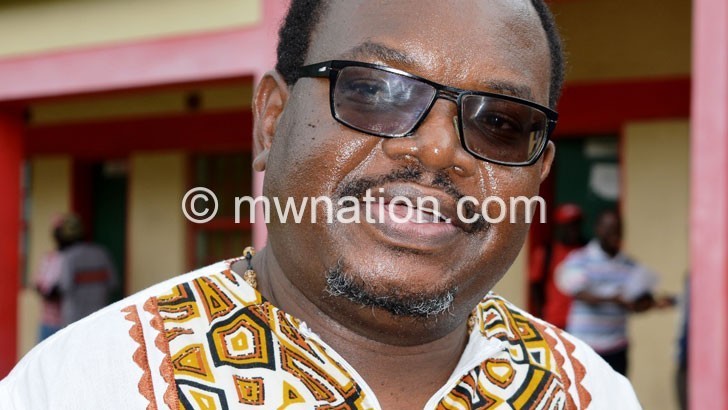A divided opposition, cracks on democracy
For any democracy to thrive, it requires a strong opposition to offer alternatives. The rise of the Tonse Alliance has left the country with a fragmented opposition ripped by power struggles. What lies ahead? Our Staff Writer FRANK NAMANGALE takes the big question to Kizito Tenthani, director of the Centre for Multiparty Democracy.

What challenges does a weak opposition pose to Malawi’s democracy?
The major function of an opposition party is to hold the governing party or parties accountable. A strong opposition keeps government on its toes as it checks against government excesses. In a way, a strong opposition party acts like a protector of the citizens against what could be unreasonable policies that government would otherwise enact if it wasn’t kept in check. Power corrupts and absolute power corrupts absolutely. The saying is always relevant to understand opposition politics. Thus, a strong opposition helps in ensuring that we have a government that puts people first.
When you have a strong opposition, you give people choices and alternatives. Where you have a weak opposition, all these advantages are lost and the country’s democracy may be at a risk. Let me hasten to add that when we talk of a strong opposition, we should not only understand it in terms of numbers. We should also understand it in terms of ideas and policy options that the opposition parties would offer.
What can citizens do to ensure that they have a government that is serving them effectively regardless of a weak opposition?
There are other avenues that citizens can make government to be accountable and responsive. People need to take interest in how they are being governed. They can demand accountability from their local representatives regardless of whether their representatives are from the ruling or opposition parties. If people can demand accountability from their representatives, it could even result in the creation of internal opposition within the ruling bloc, because those representatives will not support unpopular policies even though they belong to the same party as they know that they will be expected to answer to the people they represent.
The civil society is also another avenue of keeping government in check, as long as the civil society is not captured by political interests.
Why should Malawians be worried with the power squabbles in the main opposition DPP?
The problems in DPP are a necessary pain that the party has to go through if it has to redefine itself. But it could have served the party better if this state of affairs is not too prolonged. The party has to realise that whoever will emerge as leader of the DPP, the person will have an odious task of rebuilding the party, building trust, developing an agenda for it to mount a strong challenge in the next election. This is not something that will be done in a month. It is obvious, therefore, that the DPP as a party is facing an existential threat, if it doesn’t handle the transition properly. And, as such, one does not expect much from it in terms of providing a credible opposition as it does not really have time for anything else apart from surviving. And that is surely a cause for concern, that our democracy is losing out.
MCP (while in the opposition), Aford and UDF have had their share of squabbles, should we assume this is part of intraparty democracy and could be stages the political parties are rediscovering themselves?
The squabbles are natural and expected in all political parties. What is worrying is how they are handled. The way we handle our transitions within political parties is a clear indication that our political parties are still very nascent, not fully institutionalised. We need to ensure that political parties are guided by unbiased internal rules that are followed religiously.
Is there a better democratic way political parties can settle their differences without necessarily dragging each other to court?
Political problems ought to be settled using political means. The tendency of going to court again means that our internal party systems are largely lacking and deficient. We have to ensure that our political parties are institutionalised, they should have rules that are followed. We have to start letting internal party democracy take its right place in the running of our political parties.
Oftentimes, we have seen independent legislators shifting to government benches and supporting all government businesses, could this be another problem or probably a betrayal to the electorate?
In my view, we do not really have independent legislators as most if not all of them are disgruntled fellas at their respective party primaries. This means if people indeed voted someone to be genuinely an independent, we could start thinking about the issue of betrayal. That said, supporting government is not a problem in itself. What should be interested in are the conditions given. What is it that incentivizes somebody to join government benches. Is it in exchange for benefits that accrue to the people that are being represented?
As a long-time advocate of democracy, what word can you give to political parties that may help them build strong parties for a better democracy in the country?
My key advice is for the political parties to be institutionalised. Our political parties should be run as viable organisations, with functioning party secretariats, a meaningful support base and internal rules and regulations that are followed. Political parties should invest in having alternative sources of incomes that should free them from over-reliance on party leaders. And last but not least, our political parties should have a clearly defined agenda of how they can contribute to the development of this country, and this should be a platform for them to compete in elections at different levels, be it local government, parliamentary or presidential.





